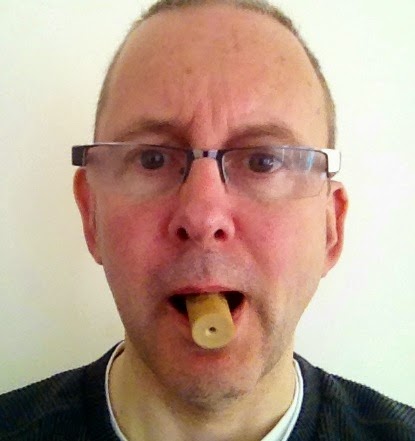Once upon a time there was a word. It wasn't a big word and it was used by a lot of people every day. This word seemed harmless, but below the surface it had an evil power that could make grown voice actors cry and have the capability to destroy careers.
But this word was a shape-shifter, it presented itself differently to different people. For the majority of the population, these villainous terms (for in reality there was more than one) remained innocuous, but to voice over artists they were deadly traps waiting to be sprung.
The demon in question is of course any word that we have difficulty in saying, especially when reading a script.
What's your poison?
I have spent the last couple of hours reading and responding to some entertaining comments on a Linkedin voice over forum (if you haven't done so already, I highly recommend you join one) about tricky words that are difficult to say. The initial question asked by US voice coach +Tommy Griffiths was
"Is there ONE WORD that you consistently have trouble saying?"
At the time of writing, there have been 127 comments citing bothersome words from 'tradition' to (surprisingly) 'opportunity'.
What will strike the casual reader/non-voice actor is how these are often everyday words that would not seem to present a problem in normal, conversational speech. In voice overs, though, they can be nothing short of nightmarish.
My own personal one is shared by a number of people, including award winning British voice talent Kara Noble - it is 'DIGITAL'.
The problem with these rogue words is that they creep up on you unawares. About 20 years ago I was booked to record a voiceover session for the (now defunct) company Digital Equipment Corporation. As you might suspect, 'digital' appeared liberally in the script, but back in those days it was a term just beginning to come into common parlance and so still had a slightly 'scientific/technical' feel to it.
On my first read through I made a slight trip around the 'G', pronouncing it too much like a 'J'. I realised that I needed to correct this, so tried again. This time, the 'T' got lost, so I gave it another shot. And another. By the fourth or fifth try the word had become a slurred version of its former self. Panic was about to set in.
Eventually, with the help of a patient director, I managed to salvage my reputation with a 'nearly but not quite' delivery. However the 'D'' word had now become my bête noire.
So how do I cope with 'digital' nowadays?
Slaying the Word Dragon
If you have been researching speech improvement on the internet, you will no doubt have come across the cork method. There are numerous versions of this, but basically the principle is the same - you stick a cork in your mouth to improve word formation and diction.
One of the advocates of this technique is +Marc Cashman. He says
Does it work?"The clearer you are [speaking] with the cork, the better you will be without it."
My philosophy is, give it a go and see if it is effective for you, but without wanting to sound too much like 'Mr Health & Safety', be careful with that cork!
My own prescription (and how I helped myself conquer 'digital') is to break the negative feedback loop. By that I mean that the issue of mispronunciation is all in the mind. We can see this quite clearly with my own experience: a small accidental slip was magnified out of all proportion as I tried to correct the mistake under pressure.
My brain had effectively sabotaged my performance and 'punished' me for my small error.
As +Tara Tyler says, it is all about stopping that negative voice in your head and taking control of your mind. I would add that you need to forgive yourself for fails and use these as a lesson on how to improve.
At the risk of sounding like psychobabble, I am convinced you should turn bloopers into a learning experience. Also (and it's easier said than done) try and forget about the fiendish word in question. This is what happened... suddenly I said 'digital' easily without realising it.
Being gentle with yourself but strong with the negative side of your brain will really help.
 |
Gary has a moderately unpronounceable surname, Terzza, which is a derivation of the Italian Terza, meaning 'third' or 'third class'! He does run a first rate voice over coaching course, though. |


No comments:
Post a Comment